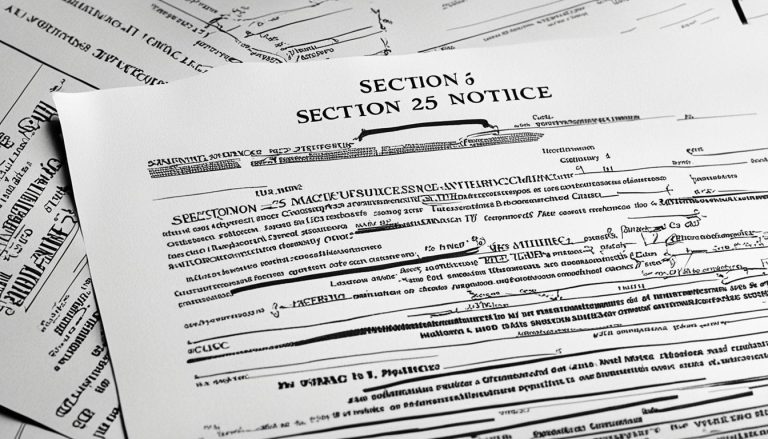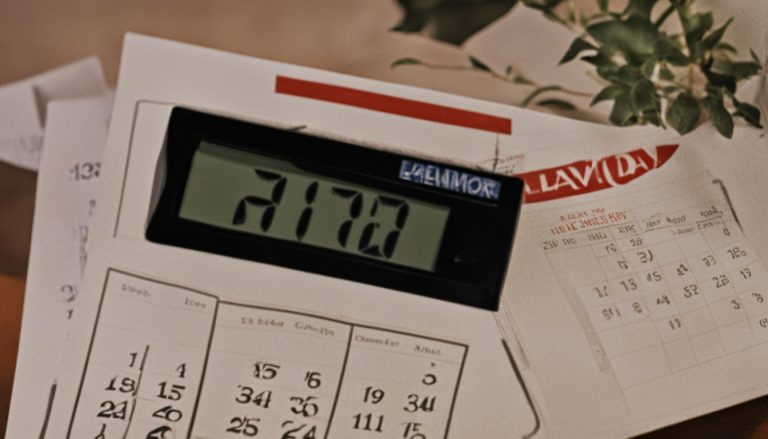There are over 4.4 million rented households in the UK, nearly a fifth of all homes. To enter this market, you must pass checks by landlords and agents. These checks confirm you are a reliable tenant.
The process includes proving you can legally rent in the UK, showing your income, and confirming your job. This article will look at the important steps in renting a home. It will help you get ready for your next rental application.
Right to Rent Checks
In England, landlords and letting agents must check if a possible tenant has the right to rent. This is to make sure that only those who can legally rent a property are allowed. It is done to stop illegal immigration by controlling who can rent homes.
Proving Your Immigration Status
Tenants have to show documents to prove they can rent in the UK. These could be a British passport, a biometric residence permit or proof of their status from the EU Settlement Scheme. If tenants don’t have these, they might ask the Home Office to confirm their right to rent.
Acceptable Documents for Right to Rent
- British passport
- Biometric residence permit
- EU Settlement Scheme share code
- Home Office right to rent check
It’s illegal to not rent to someone because of their race or where they come from. So, if someone has the right to live in England, landlords shouldn’t say no.
| Document | Explanation |
|---|---|
| British passport | Show you’re a British citizen who can live and work in the UK. |
| Biometric residence permit | Gives non-EEA citizens the okay to stay in the UK, showing they can live and work here. |
| EU Settlement Scheme share code | Let’s landlords check if EU, EEA, and Swiss citizens have the right to live here through the EU Settlement Scheme. |
| Home Office right to rent check | For tenants who can’t prove they can rent, they can ask the Home Office to check for them. |
Income and Employment Verification
When you rent a home, the landlord or agent checks your income and job to make sure you can pay the rent. You’ll need to show papers that prove you’re financially stable.
Employment Contract or Letter
They might ask for your job contract or a letter from your boss. This shows your job title, salary, and how long you’ve worked there. It’s all about making sure you can keep up with rent payments.
Payslips and Bank Statements
They’ll want some recent payslips and bank statements too. These help prove your income and that you’re good at making regular payments. It’s their way of checking if you’re financially set to rent the place.
Benefit Entitlement Proof
If you get benefits from the government, like housing benefits, you’ll need to show this. The law says landlords can’t turn you away just because you get benefits. But, they might need proof to see if you qualify for what you need.
It’s good to remember that landlords and agents should treat everyone fairly. They can’t say no because of where your money comes from. It’s all about if you can meet what’s needed to rent the place.
| Documentation Required | Purpose |
|---|---|
| Employment Contract or Letter | To verify your job title, salary, and employment duration |
| Payslips and Bank Statements | To assess your income and financial history |
| Benefit Entitlement Proof | To confirm your eligibility for government benefits |
Credit Checks and Financial History
Landlords and letting agents usually check the credit of people wanting to rent their properties. They look into your financial past and check if they can trust you. However, this check doesn’t actually lower your credit score.
Soft Credit Searches
A soft credit search means they look for big financial issues like CCJs, IVAs, or being bankrupt. But, they won’t see if you’ve missed any rent payments. This means they might not fully understand how reliable you are with money.
Credit Reports and Public Records
Landlords also look at public records and special websites for details. They might find out if you’ve been evicted or have lots of debts. These issues could affect whether they rent the place to you or not.
| Information Checked | Purpose |
|---|---|
| County Court Judgments (CCJs) | Assess the applicant’s financial reliability and ability to make rent payments on time. |
| Individual Voluntary Arrangements (IVAs) | Evaluate the applicant’s financial management and commitment to repaying debts. |
| Bankruptcies | Determine the applicant’s financial stability and long-term prospects. |
| Rental History | Identify any past issues with missed rent payments or evictions. |
These checks help landlords to pick the right tenant. By looking at your financial past, they can guess if you’ll pay your rent on time. This way, they hope to avoid problems later.

Landlord and Employment References
When you’re getting a place to live, landlords often ask for references. They want to check if you’ve rented before and if you have a job. This helps them see if you’re likely to be a good tenant.
A landlord reference looks at what your past landlords say about you. They check if you took care of the place, paid rent on time, and were generally reliable. If you don’t have this, you might need a personal reference from a boss or someone who can speak about how responsible you are.
If you work, your landlord will ask for a reference from your job. This is to make sure you have a steady income to pay the rent. In some cases, like if you own your business or have a job that doesn’t pay monthly, you might need to show extra proof of how much you earn.
| Reference Type | Purpose | What to Provide |
|---|---|---|
| Landlord Reference | Verify your rental history and that you were a reliable tenant | Contact details of your current or previous landlord |
| Employment Reference | Confirm your job, income, and length of service | Contact details of your current employer |
| Character Reference | Demonstrate your reliability and suitability as a tenant | Contact details of a professional or personal contact who can vouch for you |
It’s really important to give detailed references in the rental process. This is how landlords and agents decide if you’re a reliable tenant that they want to rent to.

What Checks Are Done for Renting a Property?
When you want to rent a home, several checks will be done. These include looking into your right to live in the country, how much you earn, your job, your financial past, and your past renting records. All this helps landlords or agents figure out if you’ll likely be a good, reliable tenant.
Tenant Referencing Process
Prospective tenants need to meet certain standards. Checks will be made to see if you:
- Can legally live in the country, through a Right to Rent check
- Have a job and income, proved by your work contract, payslips, and bank details
- Are financially reliable, through credit checks
- Have rented before, and if your previous landlords and employers recommend you
Affordability Assessments
Landlords and agents will also check if you can afford the rent. They look at your income, what you spend money on, and if you can pay a deposit or your rent early. The aim is to make sure you’re able to pay each month without trouble.
After all these checks, landlords or agents will decide if they should let their property to you. These detailed checks protect the owner’s interests and help ensure you have a smooth tenancy.
Guarantor Requirements
First-time renters or those with a weak credit history might need a guarantor. A guarantor is someone, usually a family member or friend, who promises to pay the rent if the tenant can’t. The landlord will carefully check if the guarantor can afford to pay the rent if needed.
Role of a Guarantor
A guarantor gives the landlord more security. They promise to pay the rent if the tenant has trouble. This helps tenants who are new to renting or might find it hard to prove they can afford the rent.
Criteria for Guarantors
Guarantors must meet certain requirements set by landlords. This includes:
- Good credit score: The guarantor should have a good history of repaying loans.
- Steady income: They need to show they have a regular job or pension to pay the rent.
- Homeownership: Owning a home is a plus as it shows they are financially stable.
- Residency in the UK: They should live in the UK to be legally responsible for the tenant.
Meeting these criteria helps the tenant get the property. Even if the tenant’s finances or credit score aren’t great, a suitable guarantor can make it work. This shows how valuable it can be for trustworthy tenants who might otherwise struggle to rent.

Deposit and Advance Rent Considerations
When you rent a house or flat, the owner or agents will look into who you are. They will check your background. And, they’ll also think about the money you can put down upfront. This step is key when you’re trying to rent the place you want.
The Rental Deposit
The rental deposit is like insurance for the house or flat you’re renting. It’s typically 4-6 weeks’ rent. It’s meant to cover any damage you might cause or if you don’t pay your rent. The landlord will keep it safe in a special account, as required by law.
Holding Deposit
On top of the rental deposit, they might also ask for a holding deposit. This is to make sure they keep the place for you while they check your references. It’s usually just 1 week’s rent. It shows you’re serious about moving in.
Rent in Advance
Sometimes, they’ll ask for rent money in advance, like the first month’s rent. This is another way to make sure you’re committed. It’s often part of the deal, written in your rental agreement.
| Deposit Type | Amount | Purpose |
|---|---|---|
| Rental Deposit | 4-6 weeks’ rent | Security against damage or unpaid rent |
| Holding Deposit | 1 week’s rent | Reserves the property during referencing |
| Advance Rent | 1 month’s rent | Initial financial guarantee for the landlord |
It’s vital to know about these costs before you move. Having the right amount of money ready can help your application go smoothly. This way, you stand a better chance of getting the place you like.

Conclusion
When you rent in the UK, you’ll face a detailed check by landlords and agents. They aim to make sure you’re trustworthy and can afford the rent. This check looks at your immigration status, job, how much you earn, your credit history, and what past landlords say about you. In some cases, you might need someone to vouch for you, or you might have to pay more upfront if your situation is a bit complex.
Knowing what these checks are about can make things easier for you. If you’re clued up on the renting requirements, tenant screening steps, and how the rental process works, you’ll be in a better position. You can show you’re a good tenant. This can boost your chances of getting the place you want.
The checks and references are there to make sure both sides benefit. They aim for a fair deal where everyone’s rights are respected. If you understand what’s needed, you can look for a place with more certainty. You’ll be on your way to finding a home that fits your needs well.
FAQ
What kind of references do landlords require?
Landlords like to hear from people you’ve lived with before. They want to make sure you paid on time and didn’t cause trouble. They may also ask about your job to check you’ve been stable.
What is the overall tenant referencing process?
The landlord checks a lot of things. They look at your right to live here, your job, how much you make, if you’ve had money troubles before, and how you’ve been as a tenant. They do this to be sure you’re good for the rent and won’t wreck the place.
When would I need to provide a guarantor?
If it’s your first time renting or you haven’t had much luck with money, you might need someone else to help. This is your guarantor. They have to be able to show they’re good with money and have a steady income. They promise to pay if you can’t.
What should I know about deposits and advance rent?
When you find a place, you often have to pay some money upfront. This could be up to six weeks’ worth of rent. It’s like a promise that you won’t mess up the place or skip out on the rent. They might also ask for some money before to make sure you’re really serious about renting it.






